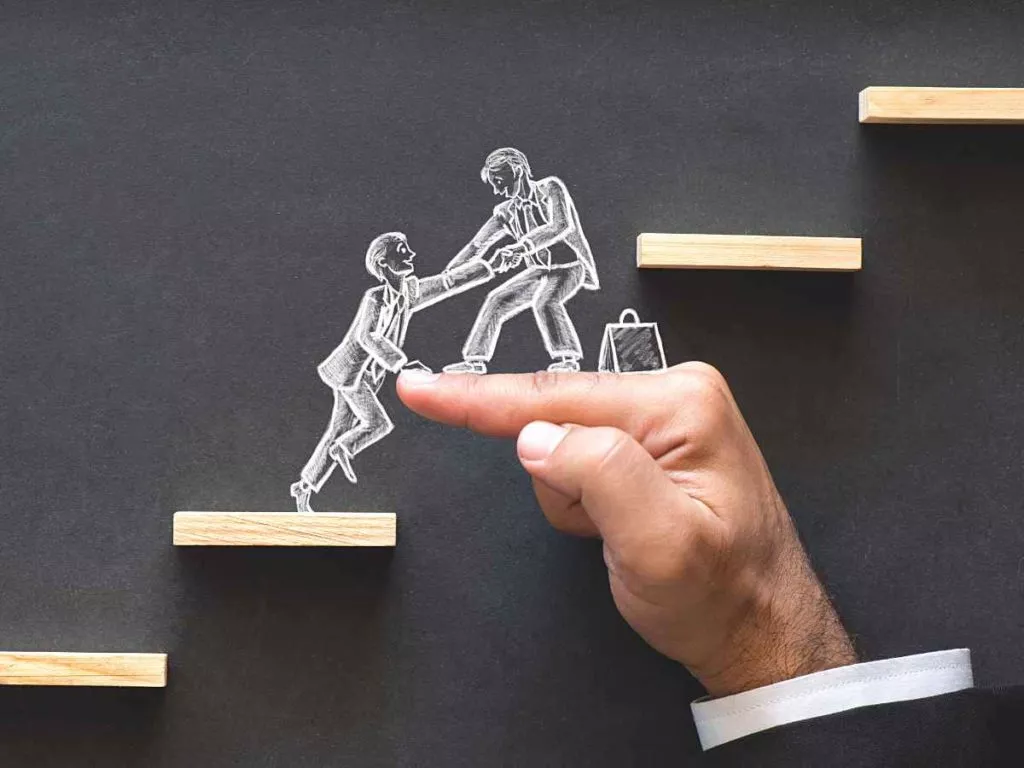One of the top reasons why people fail professionally is the lack of career goals. Not knowing one’s ultimate career goal encourages complacency and laziness. In contrast, those who willingly go out of their way to figure out their career goals and face the subsequent challenges end up becoming some of the most successful people in history.
Planning what you want for your career is easier said than done. Many may consider it tedious and downright unnecessary. However, career development planning has been the foundation of countless career stories such that it became an indispensable first step toward professional development.
What is a career development plan?
A career development plan is a personalized roadmap detailing short-term and long-term goals that a person wishes to undertake in the future. Every plan is unique as no two persons have the same goals and experience the exact circumstances. Also, people should expect to change their plans on multiple occasions because the trajectory of one’s career can point in another direction.
Why should you create a career development plan?
A Forbes survey reveals that only a quarter of companies’ employees create formal career development plans. Developing such a plan can be tedious and create no immediate advantages, but it is an insightful tool that keeps a person updated on his professional development. In a sense, it keeps one grounded on long-term goals despite the changing trends and short-term priorities. According to Trakstar’s 2023 Outlook Survey, 60% of HR leaders plan to train new employees on skills.

How to create an effective career development plan
An effective career plan is synergistic. It should balance your personal goals and the technical requirements you should fulfill to remain relevant and valuable in the workspace. Although getting inspiration from other people’s career development plans is not bad, know that custom-fitting one according to your circumstances is ideal for achieving the best results.
Here are tips for creating the most effective career development plan for yourself:
1. Identify where you are right now in your career
Before setting any goals, you should know where to start first. Assess who you are today and determine what you can do with your assets. Your current position and career stage will affect how you should approach the challenges that may come your way.
Most greenhorns should focus on acquiring new skills and more extensive job experience. On the other hand, veterans may pursue career goals by refreshing older proficiencies and building a more extensive network. Not knowing who you are will only convolute the career development planning process.
2. Identify your career goals
After knowing your current personal and professional state, the next big step would be identifying your goals. Goals can be long-term and short-term, and both can impact your career plan uniquely. Looking into trending career development goals could give you an idea of what the professional world demands today.
Identifying career goals can be abstract, and the results can be surprising. A straightforward way to do it is by listing the jobs that feel right for you and eliminating those that seem impractical. Consulting with close friends and family members works too.
3. Identify development gaps
“Analyze your growth regularly to compare with your past self and realize how far you have come,” says David Lewis, founder and owner of Monegenix, a digital insurance agency. As an experienced financial planner, Lewis advises entrepreneurs to be keen about how they develop through the years because the circumstances are never the same.
One of the most notable changes would be development gaps. Career progression necessitates the mastery of specific skills and having enough work-related experience. Acknowledging one’s career gaps is an integral step toward long-term success.
4. Identify what you need to do to close those gaps
Closing career gaps is a critical step in career development because it supplants any weakness or inefficiency that professionals have relating to their careers. Having lesser career gaps enables one to do more in their positions and have better opportunities for career growth.
There are multiple ways to close career gaps. A typical example would be taking courses to enhance one’s theoretical knowledge of specific subjects. Another way to close the gap is by gaining practical experience through paid and volunteer work.
5. Write your career development plan
After brainstorming what you should do with your goals and career gaps, it is finally time to draft career plans. There is no strict career development template, but your plan should cover enough specific details to set feasible goals. After all, not being thorough with career plans is one of the gravest mistakes in drafting a career development plan.
You do not have to devise fleshed-out plans in one sitting. Some people may need more time to create plans highlighting their best features. If you get stuck in a rut, do not hesitate to seek professional help.
6. Keep track of your progress
Regularly monitoring progress increases professional success rates. Keeping a close look at career goals will help ensure that your plans gradually translate into tangible results. Consequently, this habit prompts improvement because one becomes more conscious about behavioral performance quality and target completion accuracy.
Also, knowing your progress in the career development program validates your past efforts and sacrifices. Your accomplishments, no matter how insignificant, prove that you are somehow closer to your goals. Looking at your progress could inspire you to keep going whenever you feel discouraged.

How to stick to your career development plans
People struggle to accomplish their career development goals because they have to do much more on top of their ongoing professional responsibilities. Sticking to a career development plan is undeniably a formidable feat considering it requires countless efforts and sacrifices. If you are struggling with yours, these tips can be helpful:
1. Set SMART goals
SMART stands for specific, measurable, achievable, relevant, and time-bound. Every professional goal should embody these characteristics to set clear ideas and execute them in the most time-efficient and productive manner. SMART goals add depth and realism to career development plans. Professionals could readily identify what needs to happen and how much effort they should exert for every assigned task, even without careful inspection.
2. Change your mindset
Completing career development goals requires you to adapt to various changes. At some point, you should also change your mindset to progress along with your career. Changing your mindset does not mean abandoning your goals and interests; instead, it is a necessary expansion in response to your growing responsibilities. As your perspective toward career development matures, you will make wiser decisions.
3. Reflect on your journey
Career development is not only about achieving goals. Some of the most valuable moments transpire during your transition from one stage to another. Even though you experience losses and failures along the way, learn from them and refrain from quitting. Treat them as mere road bumps that may cause delays but never a dead end that will permanently halt your progress.
4. Get an accountability partner
An accountability partner is a person who provides support and constructive criticism to help you reach goals. Having someone to check up on you can be reassuring, considering that some career development goals take a tremendous amount of time and effort. Choose an accountability partner who is close to you and has your best interests in mind.
5. Reward yourself for small wins
Being serious about career development does not mean you should not celebrate wins, even the small ones. When you unlock achievements, acknowledging them and giving yourself appropriate rewards is proper. Rewards are scientifically proven to enhance your mental health. Being mentally satisfied keeps you from quitting your goals despite the overwhelming challenges.
Online courses for career development
When Skill Success asked for the best career advice from the Chief Executive Officer of the number one online Manuka honey brand in the US, Michael Bell, he stated: “embrace lifelong learning.” Bell explained that career-building involves constantly acquiring new skills and exploring added information. Furthermore, he noted that lifelong learning became even more accessible with the advent of the digital age.
One of the fastest ways to learn about career development today is through digital courses. At Skill Success, you will find an assortment of career development topics that will facilitate growth, no matter your current position or career development goals.
Upgrade your career development planning skills
Achieving milestones is easier with a well-structured career development plan. Advance plotting of your professional and personal goals and the necessary steps to attaining them will sharpen your focus on moving toward the right path. Learn as much as possible about the career planning process to draft the best action plan for your future.


